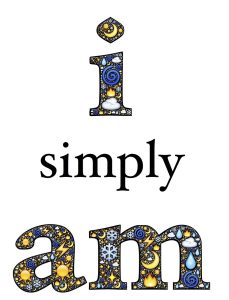
Becoming More… Authentic
Santo D. Marabella | Posted on |

This column was first published in the Reading Eagle on March 26, 2024.
We’ve talked about being authentic several times in this column over the years (2016, 2017 and 2019). Each time, we focused on a different aspect of what it means to be authentic and how to be it. This time we’ll focus on what Raffi taught me about authenticity.
Defining authenticity
I could write a book on all of the ways authenticity is defined and described. However, there’s one contribution that says it best, from author Bill George, in his seminal 2007 Harvard Business Review article, “Discovering Your Authentic Leadership.” He says:
“Think of your life as a house, with a bedroom for your personal life, a study for your professional life, a family room for your family, and a living room to share with your friends. Can you knock down the walls between the rooms and be the same person in each of them?”
Simply put, he’s asking if we can just be who we are… everywhere we are! If that’s a yes, then, we’re being authentic.
Lessons from Raffi
At home, my parents’ or a friend’s house, or his favorite place to shop (Yes, Lowes!) or place to visit (Wyomissing Optometric, my eye doctor’s), I knew what to expect.
Here’s a rundown:
• He would not bark — unless I asked him to (he was a great doorbell substitute!) or he had to go outside.
• He would say, “Hi,” to whomever I asked him to greet
• At someone’s house or a public place where he was welcomed, he would do a treat-check, and then, having been assured that was all or there were none, he would find a comfy spot to hang out until I told him it was time to go.
• He was content as long as I was in viewing range.
• He was not easily excitable unless a ball was involved.
• He never acted upset or angry. I never saw or heard him growl, though he did bark if he was afraid or thought I needed protection.
• If I was angry with him, he would lower his head and sit patiently, waiting for the lecture to end. If I was angry at something else (usually at a technology fail), he would leave the room, not wanting to share my negative energy (smart dog!)
• On the other hand, if I was sad or sick, he would shower me with kisses and remain close by my side.
So, what is the lesson here? Raffi’s behavior was predictable, consistent and unpretentious. It was genuine and real with no surprises.
Impact on others
How wonderful would it be if every person we had to work with was like Raffi? Here’s how I see it:
No more…
• walking on eggshells because I’m not sure if co-worker X so-and-so is in a good or bad mood today.
• worrying if customer service rep. Y was going to embarrass the company when dealing with a disgruntled customer
• wondering whether supervisor Z really means what they say when they tell me I’m a “valued team member who is going to grow with the company”
You get the picture! And, that’s just how our authenticity impacts others, what about what it does for us?
Impact on ourselves
First, let’s look at inauthenticity. Being inauthentic takes a toll on our psyche.
Over the years, I can recall hearing managers say, “I’d never act like this at home. I have to be a hard-ass at work to get stuff done!” Not only did many of us feel that’s how we had to be, we also knew there were “penalties” if we didn’t. We’d get a reputation — “He’s a push-over,” or “She’s just sucking up.” Worse yet, we’d get looked over when it came to advancement or promotions.
Yes, we knew there were payoffs to being inauthentic; I’m just not sure we know how much we gave up to comply. For some, it was a leadership style issue, like the one I describe in the preceding paragraph. While we may have wanted to be more empathetic or patient, as we are with our kids at home, that wouldn’t fly at work. For others (like me), it was a much bigger sacrifice.
Hiding one’s sexual orientation or religion might be something we thought we had to do to avoid mistreatment or negative attention. At the same time, the price paid can be extreme to one’s self-esteem and identity. For me, not being out in the early days of my career was stressful and an energy-drain to maintain the “face” I thought I needed to have.
At the same time, as Herminia Ibarra astutely pointed out in another Harvard Business Review article in 2015, “The Authenticity Paradox,” it’s not inauthentic to have discretion about how much of ourselves we show, to use George’s metaphor, anyone in any room of our house! Ibarra says, “Being authentic doesn’t mean that you can be held up to the light and people can see right through you.” There has to be trust — trust that what you choose to reveal won’t become something used against you to harm or demean you. I came out at work when I felt it was safe
But, when it’s right, there is nothing more liberating than being ourselves all the time. I know Raffi would agree.
Next Column: Becoming More…Empathetic!
Dr. Santo D. Marabella, The Practical Prof, is a professor emeritus of management at Moravian University and hosts the podcast “Office Hours with The Practical Prof … and Friends.” His latest book, “The Lessons of Caring” is written to inspire and support caregivers (available in paperback and eBook). Website: ThePracticalProf.com; Twitter: @PracticalProf; Facebook: ThePracticalProf.
SOURCES & FURTHER READING:
“Discovering Your Authentic Leadership,” Bill George et al, Harvard Business Review, February 2007
“The Authenticity Paradox,” Herminia Ibarra Harvard Business Review, January-February 2015
